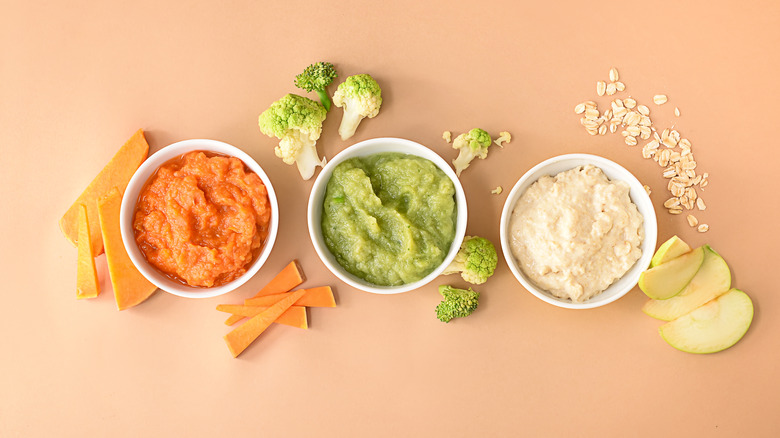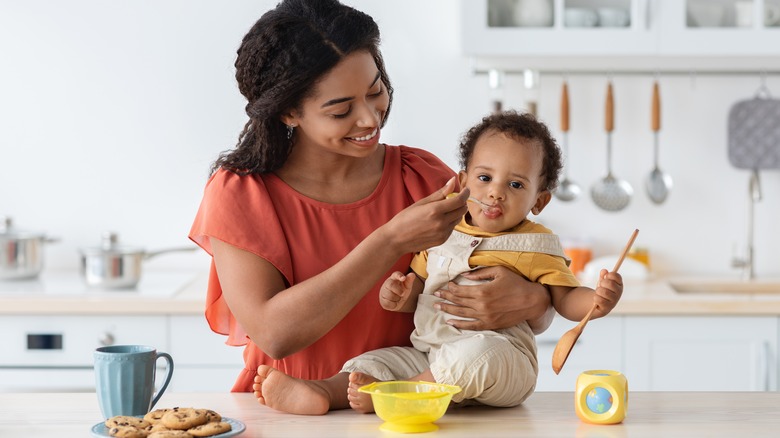Homemade Baby Food May Not Be As Healthy As You Think
In November 2019, an alliance of nonprofits, scientists, and donors called Healthy Babies, Bright Futures published a report that found that the majority of store-bought baby foods contain toxic heavy metals (via WebMD). While a popular response was just to make your own baby food at home, the group wanted to know if this was any safer, and published a follow-up report. Unfortunately, they found that homemade baby food didn't prove to be any less contaminated.
The American Academy of Pediatrics warns that heavy metals can be damaging to developing brains. Studies have shown that they've been linked to issues with cognition, behavior, and learning. The most common heavy metals found in food are mercury, arsenic, lead, and cadmium. Metals are naturally contained in the Earth's crust, but they also get into our food through pollution and during the food manufacturing and packaging process. However, it's important to note that there are other factors to brain health and development, including social, genetic, and environmental components.
While exposure to any heavy metals is harmful for adults and children alike, it's especially worrisome for children, since their bodies are still developing (via Environmental Working Group). There's no safe level of lead for babies and children, and a 2012 study published in Environmental Health Perspectives found that children with high levels of cadmium in their urine might be at an increased risk of learning disabilities and special education requirements.
Know which foods are safest to reach for
In the new report, Healthy Babies, Bright Futures found that both store-bought and homemade baby foods were contaminated with heavy metals (via WebMD). They did this by testing 288 popular foods for babies, including fruits, vegetables, cereal, and foods used for teething, as well as analyzing data from over 7,000 food test studies. While the levels of heavy metals varied by type of food, researchers found that 94% of these foods were contaminated with at least one or more toxic substances.
Four foods were so heavily contaminated that researchers recommend avoiding them completely: crisped rice cereal, rice puffs, rice cakes, and brown rice. They identified 22 foods that had moderate amounts of metals and should be consumed less frequently or rotated with safer foods, like peanut butter, oatmeal, teething biscuits, and fruit juice. Fourteen foods were found to have very little contamination, including apples, beans, bananas, and milk.
The report called for the Food and Drug Administration (FDA) to limit arsenic, lead, and other heavy metals in all foods consumed by babies and children, not just baby food. While the FDA has a multiyear timeline to approach heavy metals in store-bought baby food, almost 10,000 babies begin eating solid food in the U.S. each day and are being exposed to toxic heavy metals. In the meantime, you can help keep your children safe by feeding them a wide variety of foods to minimize toxicity and get the most micronutrients, too (via CNN).


